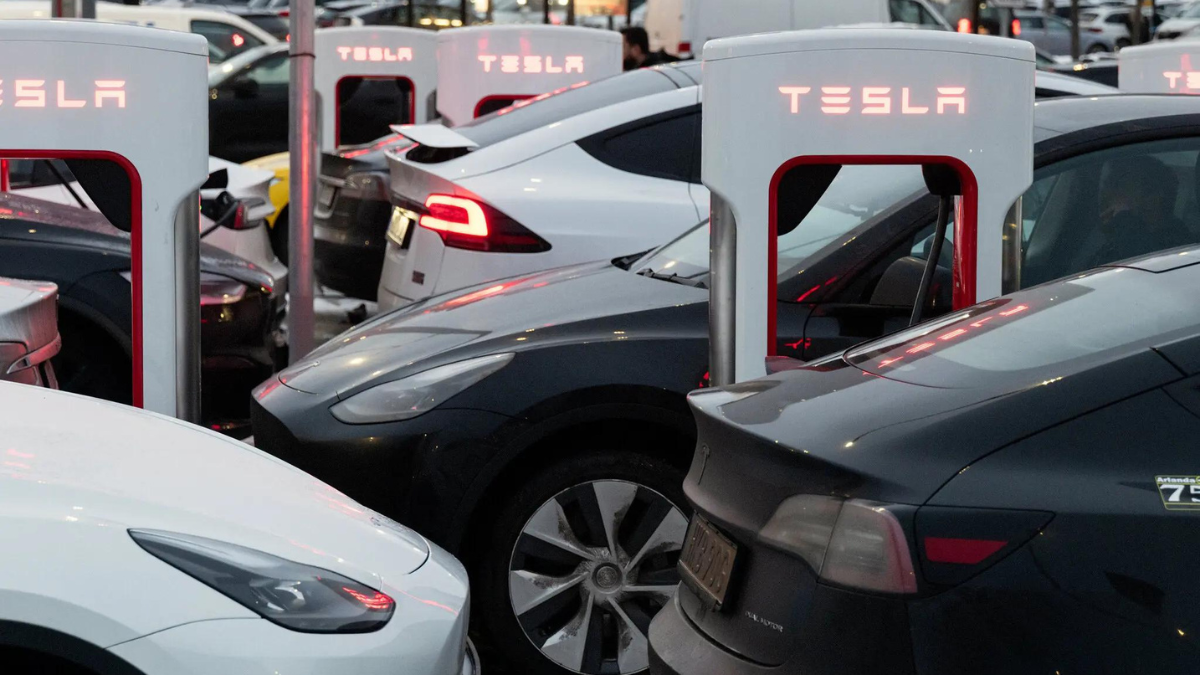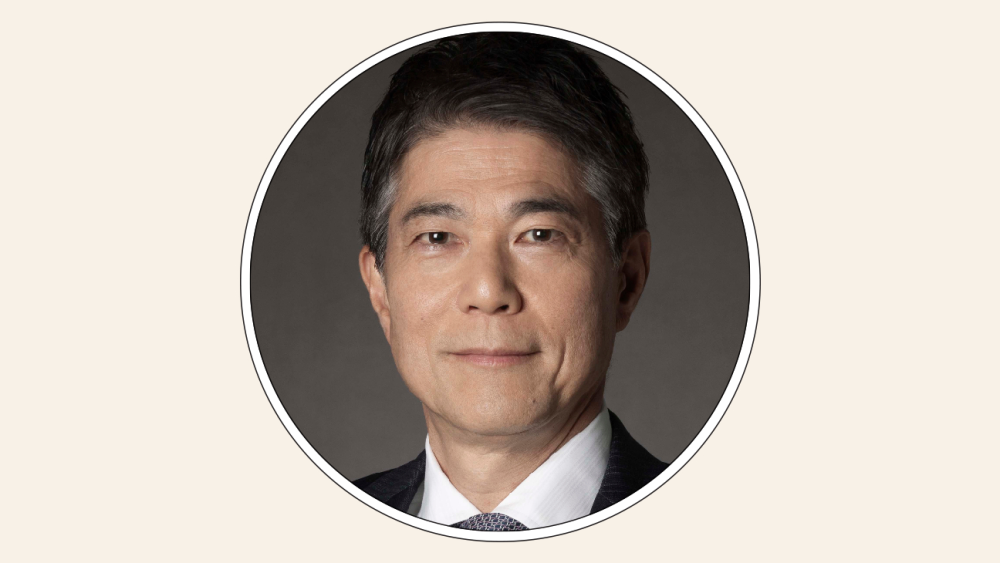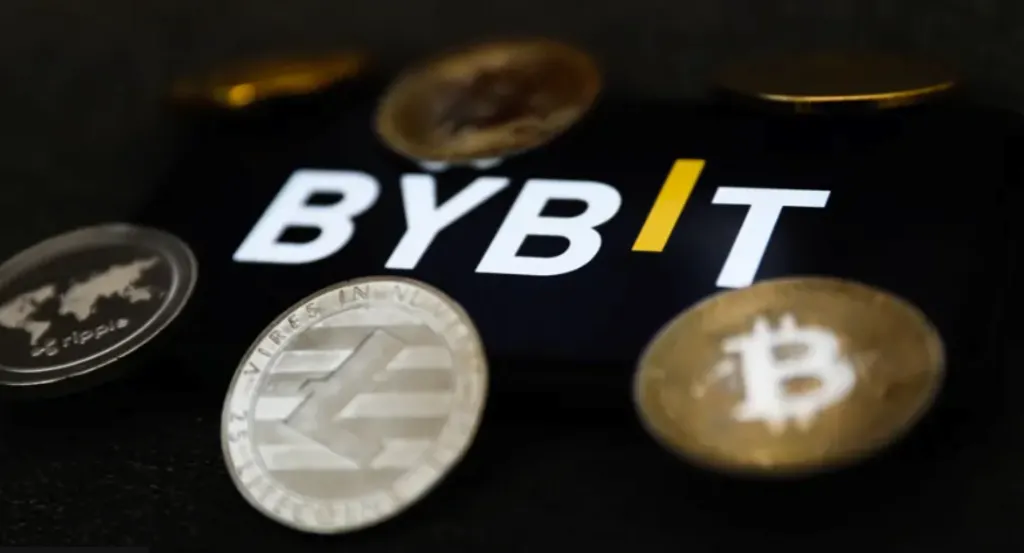Business
The Tesla Labor Controversy Saga: International Unions Rally for Change
Published
1 year agoon

The Tesla labor controversy has taken center stage in Sweden, where technicians, inspired by the Swedish Model, walked off their jobs on October 27. This dispute highlights a clash between the Swedish way of doing business, characterized by labor-management cooperation, and Tesla’s adherence to what the workers describe as a “typical U.S. model.” This article delves into the intricacies of the labor controversy, exploring the impacts, international labor relations, and the broader implications for Tesla and its chief executive, Elon Musk.
Labor-Management Cooperation and the Swedish Model
At the heart of the Tesla labor controversy is the clash of work philosophies – the Swedish Model versus the U.S. model. The Swedish Model, a way of life ingrained in the country’s economy for decades, emphasizes cooperation between employers and employees to ensure mutual benefits. Technicians who initiated the strike argue that the U.S. model imposes six-day workweeks, unavoidable overtime, and an unclear promotion evaluation system, deviating from the collaborative spirit of the Swedish way of doing business.
This clash has prompted at least 15 other unions in the Nordic region to support IF Metall, the union representing Tesla workers, in demanding a collective bargaining agreement. The controversy has become a global lightning-rod issue, drawing attention to the differing labor practices and sparking discussions about the impact of Tesla’s stance on unions worldwide.
Collective Bargaining and Industrywide Norms
The crux of the labor controversy revolves around the call for a collective bargaining agreement that sets wages and benefits aligning with industrywide norms in Sweden. IF Metall seeks to negotiate terms reflecting the consensus-based approach prevalent in the country. The union’s push for collective bargaining has led to solidarity strikes not only in Sweden but also in Denmark, Norway, and Finland, illustrating the widespread concern and support from unions across borders.
Tesla, valued at about $817 billion, has demonstrated its willingness to fight against these demands, taking legal action against the Swedish agency responsible for automobile registrations and the postal company during the strike. The company argues that it provides wages and benefits equivalent to or better than those in a collective agreement, including stock options as a lucrative incentive.
Also Read: Autonomous Driving in Question as Tesla Recall Two Million Vehicles
International Labor Relations and Global Impact
The Tesla labor controversy transcends national borders, with unions from neighboring countries rallying around IF Metall. Dockworkers, repair shop employees, postal workers, and electricians from different nations have joined the cause, disrupting various aspects of Tesla’s operations. This international solidarity amplifies the significance of the dispute, turning it into a global symbol for labor rights.
Despite these measures, Tesla’s sales in Sweden, as of October, do not show a significant dent, with the Model Y poised to become the most popular vehicle in the country for 2023. However, the controversy raises questions about the balance between labor rights and business flexibility, challenging the consensus-based approach that has long defined Sweden’s way of doing business.
Worker Rights and Public Perception
The strike has garnered significant public support in Sweden, where the majority view it as a defense of the country’s consensus-based model. Nine out of ten Swedes work under a labor agreement, and strikes are relatively rare. However, as the controversy prolongs, concerns are emerging about whether Sweden’s reliance on labor-management agreements hinders business flexibility and agility.
On the flip side, some Tesla owners perceive the strike as a power play by a wealthy and politically influential union. The divide among Tesla owners reflects the polarization in public perception, with some viewing the strike as a necessary defense of worker rights, while others see it as an overreach by the union.
Also Read: China Online Gaming Crackdown Sends Shockwaves Through Tech Stocks
Impact on Tesla and Future Implications
The labor controversy’s impact on Tesla remains a subject of speculation. While registration numbers for new vehicles do not show a significant decline, the disruption caused by solidarity strikes and the prolonged walkout may have implications for Tesla’s operations and customer satisfaction. Reports suggest that some prospective buyers are apprehensive about delays in receiving their Tesla cars, raising concerns about Tesla’s ability to maintain “business as usual.”
As the controversy continues, it has attracted the attention of institutional investors managing a substantial $1 trillion in assets, expressing deep concern about Tesla’s approach toward worker rights in Sweden. This adds a financial dimension to the dispute, as investors call for a meeting with Tesla’s board early next year.
Conclusion
In conclusion, the Tesla labor controversy is a complex and multifaceted issue that goes beyond a mere strike by technicians. It encapsulates a clash of work philosophies, international labor relations, and the delicate balance between worker rights and business flexibility. As the dispute continues, it not only shapes the future of labor relations at Tesla but also serves as a significant case study in the broader discourse on workplace practices and the global impact of labor disputes. The outcome of the Tesla labor controversy will undoubtedly have far-reaching implications for both the
Sahil Sachdeva is an International award-winning serial entrepreneur and founder of Level Up PR. With an unmatched reputation in the PR industry, Sahil builds elite personal brands by securing placements in top-tier press, podcasts, and TV to increase brand exposure, revenue growth, and talent retention. His charismatic and results-driven approach has made him a go-to expert for businesses looking to take their branding to the next level.

You may like
Business
Media Disruption: New Player’s Explosive Market Debut
Published
21 hours agoon
April 1, 2025
The landscape of media is undergoing a seismic shift. In an era where digital platforms and streaming services dominate, a traditional cable news outlet has defied expectations, making a remarkable entrance into the public market. This debut, marked by an astonishing surge in stock value, underscores the enduring power of niche content and the evolving dynamics of audience engagement.
The story unfolded on a recent Monday, as a conservative cable news network, known for its right-leaning perspective, began trading on the New York Stock Exchange. The initial pricing of the shares, set at a modest $10, quickly became a distant memory as the stock price skyrocketed. In a display of market volatility, the stock soared by over 700%, closing the day at an unprecedented $83.51. This dramatic increase signals a strong investor interest in the network’s potential, defying the prevailing trends that have seen traditional cable television struggling against the rise of digital streaming.
The network’s success can be attributed, in part, to its strategic positioning within a specific segment of the news market. With the rise of prominent right-wing figures, the network has successfully cultivated a loyal audience seeking news and commentary that aligns with their political views. This targeted approach has proven effective in a media landscape increasingly fractured by partisan divisions.
The company’s journey to this point has been marked by significant milestones. Initially, the network focused on building its digital presence before expanding into cable television. This dual approach allowed them to establish a foothold in both online and traditional media spaces, laying the groundwork for their eventual public offering.

The IPO itself was a rare event in the current media climate. Data indicates that a pure-play television network IPO of this scale is a rarity, marking a significant departure from recent trends. This move comes at a time when many cable television providers are grappling with declining viewership as consumers migrate to streaming platforms. However, the network’s success demonstrates that live news and political commentary can still command a substantial audience, particularly when tailored to specific demographic groups.
The network’s founder and CEO, during a live interview, emphasized the opportunity to cater to an underserved market segment. He articulated a vision of providing an alternative perspective in a space dominated by established players. This strategic move to occupy a specific niche has resonated with viewers seeking a distinct viewpoint.
While the network has experienced significant growth, it acknowledges that its audience reach still trails behind that of larger, more established cable news networks. However, its consistent ranking among the top cable news channels underscores its growing influence and market share. This achievement is particularly noteworthy considering the network’s relatively short tenure in the cable television arena.
A crucial aspect of the network’s financial strategy has been its shift towards securing licensing fees from cable television providers. Initially reliant on advertising revenue, the network has successfully negotiated agreements that provide a more stable and predictable income stream. This transition reflects the evolving dynamics of the cable television industry, where content providers are increasingly seeking to monetize their programming through carriage fees.
As the network enters this new phase as a publicly traded company, it faces the challenge of balancing its editorial mission with its financial obligations. The network has publicly stated its commitment to independent journalism, even while acknowledging its conservative leanings. This delicate balance will be closely watched by investors and viewers alike.
The network’s recent public statements, including those made by its founder on social media, have highlighted its connections with prominent political figures. These interactions underscore the network’s close ties to the political landscape and its role in shaping public discourse.
In conclusion, the network’s explosive market debut signifies a significant development in the media industry. It highlights the enduring power of niche content and the evolving dynamics of audience engagement. As the network navigates its new role as a publicly traded company, it will be closely watched by investors, viewers, and media analysts alike. The story of this networks rise, is a testament to the fact that in a changing media world, new players can still make a massive splash.

The rise and fall of a once-celebrated co-working giant is a story that captivated the business world. From meteoric growth and a staggering multibillion-dollar valuation to a sudden crash and financial turmoil, the company’s trajectory was anything but ordinary. Initially envisioned as a revolutionary force in the real estate industry, the brand gained global recognition for its bold approach to flexible workspaces. However, rapid expansion, unsustainable business practices, and internal mismanagement led to its eventual bankruptcy.
But as history has shown, failure doesn’t always mark the end of a journey—it can be the beginning of a transformation. With a fresh leadership perspective and a clear focus on stability, strategic growth, and operational discipline, the company is entering a new era. The mission remains: to provide dynamic and adaptable workspaces for businesses of all sizes. However, the approach has shifted dramatically, emphasizing sustainability over speed.
At the helm of this transformation is a seasoned executive with decades of experience in commercial real estate. His journey in the industry spans nearly half a century, with deep expertise in navigating market cycles, structuring profitable deals, and driving operational efficiency. Taking over leadership at a critical moment, his goal is to reposition the company as a more stable and financially secure organization. “This was an exciting challenge—an opportunity to take something that had incredible potential and guide it toward long-term success,” he shares.
A Smarter Approach to Growth
In its early years, the company pursued an aggressive expansion strategy, leasing premium office spaces in major cities worldwide. The idea was simple: rent large office spaces, transform them into shared co-working hubs, and sublease them to freelancers, startups, and corporations. The rapid growth fueled excitement and investment, but it also created financial vulnerabilities. When market conditions shifted and demand fluctuated, the risks became apparent.
Under new leadership, the strategy is evolving. Instead of relying solely on long-term leases—a model that exposed the company to significant financial liabilities—the company is now diversifying its approach. The leadership team has introduced three primary models for managing office spaces:
-
Traditional Leases: In some locations, the company still rents office spaces directly, assuming full responsibility for occupancy and operational costs. However, these deals are now approached with greater scrutiny, ensuring they align with financial sustainability goals.
-
Revenue-Sharing Agreements: In these locations, landlords receive a lower fixed rent, but they share in the financial upside when revenue exceeds a set threshold. This structure balances risk and reward between both parties.
-
Management Agreements: Here, the company manages office spaces on behalf of landlords, earning a management fee while avoiding direct financial exposure to the real estate itself. This model allows the company to focus on its core strength—creating high-quality workspace experiences—without taking on unnecessary risk.
By leveraging these flexible models, the company can expand strategically, taking on new locations where it makes financial sense while avoiding the pitfalls of unchecked growth. “We will opportunistically expand but remain disciplined,” the CEO emphasizes. Instead of prioritizing rapid expansion, the focus is on optimizing existing locations and ensuring they remain attractive to modern businesses.

Investing in the Future of Work
While reducing risk is a key priority, the company is not shying away from investment. In fact, it has allocated $80 to $90 million this year alone to enhance and refresh existing locations. Many spaces had seen little reinvestment during the financial restructuring phase, and leadership recognizes the importance of maintaining high-quality work environments.
The investment strategy focuses on three key areas:
-
Modernizing Office Spaces: Workspaces are being updated to align with the evolving expectations of professionals. High-end finishes, improved lighting, ergonomic furniture, and better technological infrastructure are all part of the upgrades.
-
Enhancing Hospitality Services: The company is placing greater emphasis on hospitality, ensuring that its locations offer not just desks and meeting rooms, but also premium services that create a welcoming and productive atmosphere.
-
Strengthening Community Engagement: One of the company’s key differentiators has always been its sense of community. To reinforce this, leadership is rolling out initiatives that encourage networking, collaboration, and engagement among members.
By making these strategic investments, the company aims to differentiate itself in a competitive landscape, providing workspaces that offer both flexibility and a premium experience.
The Evolution of Design & Experience
Beyond financial strategy, the company’s physical spaces are also evolving. In the past, its offices were known for their bold, unconventional designs—bright neon signs, open lounges with bean bags, and even beer taps in common areas. While this aesthetic helped define its early identity, the market has matured, and so has the company’s approach to design.
The new direction balances sophistication with warmth. Recent office updates feature high-end finishes, mahogany woodwork, and custom cabinetry. Conference rooms are designed to resemble traditional corporate headquarters, but with inviting elements such as natural light, greenery, and integrated technology. “We’ve refined our design to match what businesses are looking for today—modern, elegant, and highly functional spaces,” the CEO explains.
This shift reflects a broader trend in workplace design. While creative, casual environments still have their place, businesses are increasingly looking for professional settings that reflect their brand image and corporate culture. The company is responding by offering versatile workspaces that cater to startups, mid-sized firms, and large enterprises alike.
The Future of Work and the Flexible Model
The global shift in workplace trends has created a strong demand for flexible office solutions. The traditional model of companies leasing large office spaces for extended periods is no longer as appealing. Instead, businesses are seeking adaptable solutions that allow them to scale up or down as needed.
A recent industry survey found that 80% of real estate executives expect at least 20% of their office portfolio to consist of flexible workspaces in the future. This shift reflects a fundamental change in how businesses approach office space—favoring agility and efficiency over rigid, long-term commitments.
The company is well-positioned to capitalize on this trend. By offering customizable office solutions, it provides businesses with the flexibility they need without the burdens of long-term leases. The CEO explains, “Any disruption and movement in the market is good for us because we fill that gap. Whether companies need short-term solutions or longer-term arrangements, we offer a way to adapt to their needs.”
A New Era of Financial Stability
One of the biggest challenges the company has faced in its history is profitability. While the concept of flexible workspaces is in high demand, turning that demand into sustainable revenue has been a complex challenge.
However, there are signs of progress. For the first time in its history, the company recently reported a break-even quarter from an EBITDA (Earnings Before Interest, Taxes, Depreciation, and Amortization) perspective. While not yet consistently profitable, this milestone suggests that the new strategy is working.
The CEO remains optimistic: “The business model works—there is a clear demand for flexible office solutions. Our focus is on making sure we execute in a way that ensures long-term financial health.”
A More Mature Vision
The company that once promised to revolutionize the office industry has now embraced a more measured, strategic approach. It is no longer chasing headlines about becoming the next tech giant. Instead, it is positioning itself as a leader in flexible workspaces—offering practical, high-quality office solutions that meet the needs of today’s workforce.
With a renewed focus on financial health, smart expansion, and a refined user experience, the company is proving that adaptability is the key to longevity in an ever-changing industry. The excitement and energy remain—but now with a sense of maturity that ensures it is built to last.
As businesses continue to evolve their approach to work, one thing is clear: the future of office space is flexible. And with a disciplined, strategic vision, this company is ready to lead the way.
Business
New Leadership Drives Entertainment Giant’s Japan Expansion
Published
5 days agoon
March 28, 2025
A significant shift in leadership has occurred at a major entertainment powerhouse, with the appointment of a seasoned executive to steer its Japanese operations. This strategic move signals a renewed focus on growth and deepening consumer connections within the vital Japanese market. The appointed leader brings over three decades of experience, promising to leverage deep market insight and strategic acumen to elevate the company’s entertainment presence.
The newly appointed managing director will be responsible for overseeing the expansion of the entertainment giant’s business ventures in Japan. This includes strengthening existing platforms and forging new pathways to engage the Japanese audience. The executive’s prior experience as a top leader at renowned multinational corporations positions them uniquely to drive innovation and achieve new milestones in this dynamic market.
This leadership change follows a period of significant growth and successful establishment of a robust original content pipeline. Under the previous leadership, the company’s streaming platform ascended to a leading position in Japan, demonstrating the market’s appetite for diverse and compelling content. The departing executive will continue to play a pivotal role in the company’s regional strategy, focusing on critical areas such as original content development and integrated marketing across the Asia-Pacific region.
The new managing director expressed enthusiasm about joining a globally recognized company with a rich history of beloved stories and characters. They acknowledged Japan’s increasing importance as both a consumer and content hub in the entertainment industry, and voiced a commitment to contributing to the company’s exciting momentum. This appointment underscores the company’s dedication to investing in the Japanese market and building upon the strong foundation already established.
The company’s regional president emphasized the importance of this strategic leadership change, highlighting the new managing director’s proven track record and extensive local network. They expressed confidence that the executive’s expertise will propel the entertainment business to unprecedented heights in Japan. The president also acknowledged the indelible impact of the previous leader, whose contributions have been instrumental in the company’s success in the region.
This transition marks a pivotal moment for the entertainment giant’s operations in Japan. As the industry continues to evolve, strategic leadership and a deep understanding of the local market are crucial for sustained growth and success. The newly appointed managing director’s experience and vision are poised to drive innovation, foster stronger consumer connections, and further solidify the company’s position as a leading entertainment provider in Japan.
The company is committed to delivering exceptional entertainment experiences to its Japanese audience. This commitment is reflected in its ongoing investment in original content, strategic partnerships, and innovative platforms. The new managing director will play a crucial role in ensuring that these efforts resonate with the local market and drive long-term growth.
The appointment also highlights the company’s recognition of Japan’s unique cultural landscape and the importance of tailoring its offerings to meet the specific preferences of Japanese consumers. By leveraging the new managing director’s deep understanding of the market, the company aims to create content and experiences that are both relevant and engaging.
In a rapidly changing entertainment landscape, adaptability and innovation are key. The company’s decision to bring in a seasoned leader with a proven track record demonstrates its commitment to staying ahead of the curve. The new managing director’s strategic vision and leadership will be instrumental in navigating the challenges and opportunities that lie ahead.
The company’s focus on building strong relationships with local partners and creators will also be crucial for its continued success in Japan. By fostering collaboration and supporting local talent, the company aims to create a vibrant and dynamic entertainment ecosystem that benefits both creators and consumers.
This leadership transition marks a new chapter in the company’s journey in Japan. With a renewed focus on growth, innovation, and consumer engagement, the entertainment giant is poised to further solidify its position as a leading force in the Japanese entertainment market. The appointment of the new managing director signals a strong commitment to the future and a dedication to delivering exceptional entertainment experiences to Japanese audiences.
Business
Broadway’s ‘Good Night and Good Luck’ Shatters Records with Historic Weekly Gross
Published
7 days agoon
March 26, 2025
Broadway has a new champion. The theatrical adaptation of Good Night and Good Luck has officially set a new benchmark, breaking the record for the highest weekly gross for a Broadway play with a staggering $3.3 million. This achievement is even more remarkable given that the earnings came from just seven preview performances, proving that audiences are flocking to witness the production before its official opening.
A Theatrical Milestone
The play, based on the acclaimed 2005 film, takes audiences back to the gripping era of 1950s journalism, with a legendary actor stepping into the role of the iconic broadcaster Edward R. Murrow. The story follows Murrow’s battle against Senator Joseph McCarthy during the height of the Red Scare, a narrative that remains powerfully relevant in today’s world of media scrutiny and political tension.
This new record-breaking performance dethrones the previous highest-grossing play, which had set a then-impressive record of $2.82 million in weekly earnings. While that production featured an all-star cast and performed in a theater with a slightly smaller capacity, Good Night and Good Luck has proven that historical dramas, when executed with excellence, can command massive audience interest and ticket sales.

A Box Office Sensation
With an average ticket price of $302.07 and an astounding 101% theater capacity at the renowned Winter Garden Theater, Good Night and Good Luck is shaping up to be one of the most lucrative plays in Broadway history. The theater, which boasts a seating capacity of 1,545, provided the production with an edge in reaching these historic earnings.
Notably, the previous record-holder played at a different venue with a capacity of 1,043 seats. The former champion had also hosted several press previews during its record-breaking week, with a substantial number of complimentary tickets given away, which impacted its total revenue. Additionally, its Sunday performance was entirely comped due to press and VIP attendance, slightly diminishing its gross potential.
Despite these factors, Good Night and Good Luck has cemented itself at the top, demonstrating the unwavering demand for gripping, socially relevant narratives in the theater industry.
A Powerhouse Production with Unmatched Audience Demand
The success of Good Night and Good Luck is a testament to both its compelling storytelling and the powerhouse performances behind it. The play’s leading man, known for his commanding presence on stage and screen, has been a major draw for audiences. The script’s focus on journalistic integrity and political drama has also struck a chord with theatergoers, leading to near-impossible ticket availability.
What makes this feat even more impressive is that it has outpaced some of Broadway’s most legendary productions. The $3.3 million gross not only secured Good Night and Good Luck the title of the highest-grossing play in history but also placed it at the very top of Broadway’s earnings chart for the week. It surpassed even long-running musical juggernauts, including Wicked, which brought in $2.545 million.
Meanwhile, the former record-holder—despite its small ticket price dip to an average of $303.15—still performed well, securing the position of the third-highest-grossing show of the week. Other notable top earners included Glengarry Glen Ross ($2.1 million) and Hamilton ($2.07 million), both of which continue to dominate Broadway’s financial landscape.
Rising Stars and New Shows Adding to Broadway’s Momentum
The record-breaking performance of Good Night and Good Luck is part of a larger trend of increased Broadway interest, driven by a mix of new productions, celebrity-led casts, and award-season buzz. Several new plays have joined the Broadway lineup ahead of the highly anticipated Tonys eligibility deadline at the end of April, bringing even more excitement to the theater scene.
One such production, The Last Five Years, starring two incredibly popular performers, debuted at Broadway’s Hudson Theatre last week and played five performances to full capacity. It brought in an impressive $731,535 with an average ticket price of $151.14, proving that there is still a strong appetite for contemporary musicals with emotional depth.
Similarly, John Proctor Is the Villain, featuring one of Hollywood’s rising stars, made a striking entrance at the Booth Theatre. Playing just three preview performances, the show already managed to sell out at full capacity and generate $190,867 in revenue. These early figures indicate that Broadway is on an upward trajectory, with fresh content attracting diverse audiences.
Broadway’s Financial Resurgence
With all these developments, Broadway’s total industry grosses are soaring. Compared to the previous week, total earnings saw a 10% increase, driven by the blockbuster debut of Good Night and Good Luck and the addition of several new productions. Even more impressively, the industry’s total earnings for the season are up 19% compared to the same time last year, highlighting a major resurgence in live theater attendance.
Much of this success can be attributed to a combination of strong marketing strategies, strategic casting choices, and the return of audience confidence post-pandemic. Big-name stars continue to play a crucial role in driving ticket sales, as fans clamor to witness their favorite film and television actors transition onto the live stage.
Additionally, Broadway has leaned into dynamic storytelling, offering a mix of historical dramas, modern musicals, and innovative revivals. This diverse programming ensures that there is something for everyone, whether it’s a thought-provoking political play like Good Night and Good Luck or an emotionally charged musical like The Last Five Years.
What’s Next for Broadway?
As the Tonys eligibility deadline looms, Broadway is expected to see even more surprises. With several highly anticipated plays and musicals still set to premiere in the coming weeks, the competition for both audience attention and awards recognition is fiercer than ever.
Looking forward, the industry will closely watch whether Good Night and Good Luck can maintain its momentum beyond its record-breaking preview weeks. Many high-grossing plays experience a surge in ticket sales early on, only to stabilize or decline after their official opening. However, with the level of buzz surrounding this production, it’s possible that it will continue to dominate the Broadway box office for months to come.
For now, one thing is certain: Good Night and Good Luck has made history, proving that a gripping story, combined with a powerful performance, can capture the hearts (and wallets) of audiences like never before. As Broadway continues its upward trajectory, fans can only expect more groundbreaking moments in the theater world.
Business
Leaders Reap Massive Payouts in Major Industry Deal: A New Era of Private Power
Published
1 week agoon
March 25, 2025
The entertainment and sports industry has witnessed a transformative event, characterized by substantial financial transactions and a strategic pivot towards private ownership. This move, marked by significant executive payouts and equity reinvestments, signals not just a financial restructuring but a fundamental shift in the industry’s power dynamics. Top-tier executives have secured remarkable nine-figure cash payouts as part of a major take-private deal, a testament to their pivotal roles in the company’s growth and success. However, the true significance lies in their decision to reinvest substantial portions of their equity, demonstrating a profound belief in the future of the newly private entity.
One prominent industry leader, a figure synonymous with strategic innovation, received a staggering $174 million payout. His counterpart, equally influential in shaping the company’s trajectory, secured $100 million. Beyond these impressive figures, both executives are demonstrating a long-term commitment by rolling over substantial equity into the new private venture. The first leader’s equity contribution exceeds $290 million, surpassing initial agreements, while the second leader is reinvesting nearly $266 million, also exceeding prior agreements. This level of personal investment underscores their confidence in the company’s future direction and potential for growth. Furthermore, a key executive, vital to the company’s daily operations, is also contributing a large amount of equity, further solidifying the leadership team’s belief in the company’s continued success.
The $25 billion deal, recently finalized, involved a $27.50 per share payout for the remaining stock, effectively concluding a nearly four-year run on the public markets. This transition to private ownership grants the company greater strategic flexibility and agility, allowing for more rapid decision-making and long-term planning. However, it’s crucial to acknowledge that the entity will retain a controlling interest in a publicly traded holding company that encompasses major sports and entertainment properties, including prominent organizations such as the UFC and WWE. This hybrid structure allows for the benefits of both private and public ownership.

The Strategic Shift to Private Ownership
This move marks a broader industry trend where major corporations are increasingly seeking the advantages of private ownership. By eliminating the constant scrutiny of quarterly earnings reports and the pressure from public shareholders, companies can focus on long-term strategies and innovation. The ability to make swift, strategic decisions without external interference gives these companies a competitive edge in an industry that is evolving rapidly.
Private ownership also enables companies to explore new revenue streams and investment opportunities without the immediate need for market approval. This is particularly crucial in the entertainment and sports sectors, where shifting consumer behaviors, digital transformation, and emerging platforms necessitate constant adaptation. By going private, the company is positioning itself to better navigate these industry changes and capitalize on opportunities that may not align with short-term shareholder expectations.
A Bold Leadership Commitment
The executives’ decisions to reinvest substantial portions of their earnings into the newly private entity demonstrate an extraordinary level of confidence in its future trajectory. Such reinvestments are not merely symbolic gestures; they are strategic moves that align leadership incentives with the long-term success of the company.
This reinvestment also reassures stakeholders, including employees, business partners, and investors in the publicly traded holding company, that the core leadership remains committed to growth. When top executives choose to reinvest their wealth into the business, it signals strong optimism about the company’s future performance and stability. This level of commitment often translates into better decision-making, stronger leadership stability, and a clearer strategic vision.
Implications for the Industry
This transaction represents more than just a financial maneuver; it signifies a strategic realignment within the entertainment and sports industry. It reflects a growing trend towards private ownership, which offers greater control and the ability to pursue long-term strategic visions without the pressures of quarterly earnings reports. This shift comes at a time when the entertainment industry is undergoing rapid transformation, driven by technological advancements, evolving consumer preferences, and the rise of digital platforms. The move to private ownership will allow the company to adapt more quickly to these changes and capitalize on emerging opportunities.
The entertainment and sports industries are increasingly dominated by technology-driven platforms that are reshaping how content is produced, distributed, and consumed. Streaming services, social media integration, and direct-to-consumer business models have upended traditional revenue streams. As a private entity, the company will have more flexibility to invest in these areas, experiment with new business models, and form strategic partnerships that might have been difficult under public ownership.
The Role of Public-Private Hybrid Structures
While the company is transitioning into a private entity, its retention of a controlling interest in a publicly traded holding company is a unique and strategic approach. This hybrid structure allows the company to benefit from the advantages of both private and public markets. On one hand,
Business
Old Patrolman Guard Services to Acquire Sanco Records and Launch a Sister Event Security Firm
Published
2 weeks agoon
March 19, 2025
In the fast-paced world of security, reliability is everything. For Hayson Tasher, founder of Old Patrolman Guard Services (OLDPGS), security isn’t just a business—it’s a lifelong commitment. From working at top entertainment venues to protecting businesses through economic downturns, OLDPGS has stood as a pillar of trust and quality control. Now, with the acquisition of Sanco Records and plans to launch a sister event security firm, Tasher is taking his vision to the next level.
Hayson Tasher’s leadership journey began early—in the 6th grade. As both school safety officer and school president, he quickly learned the importance of responsibility and organization. One defining moment came when Mr. T visited his school for a scripted performance, instructing him to “play dead” in front of his peers. That moment sparked something within him—a realization that safety, control, and preparedness were critical in all aspects of life.
That early passion translated into his professional life, leading to the formation of OLDPGS, which started at Hollywood’s iconic venues, including The Fonda Theatre, El Rey Theatre, and The Roxy. Back then, OLDPGS was just Tasher himself, working alongside house security teams at major shows. From Tom Petty to XXXTentacion, Mavis Staples, Rich Homie Quan, Chloe x Halle, and Willow Smith, Tasher provided top-tier security, ensuring smooth and safe events.
Security is a business that never sleeps, but it’s not without obstacles. The COVID-19 recession hit many industries hard, shutting down venues and businesses. Yet, OLDPGS remained essential, standing ready for on-call security services while many clients shut their doors.
What sets Tasher apart is quality control. In an industry where cutting corners can lead to disaster, he follows the advice of his mother: “No half-ass job. Do your best.”
Now, Tasher is setting his sights on a bold expansion—the acquisition of Sanco Records and the launch of a sister event security firm. This move will allow OLDPGS to diversify into entertainment security on a larger scale, combining event expertise with top-tier protection.
Hayson Tasher’s mission isn’t just about security—it’s about opportunity. He hopes to inspire others by creating jobs and ensuring safety in entertainment and beyond. The future of OLDPGS includes retail locations selling branded security gear, from uniforms and batons to firearms and security cameras. With expanded event security operations, Tasher is ensuring seamless protection for high-profile events while reinforcing the company’s motto: “Security You Can Count On.”
With his relentless drive and commitment to quality, Hayson Tasher is proving that in security—and in business—opportunity is the key.
For more information, visit: OLDPATROLMANGUARDSERVICESOLDPGS.org
Business
#1 Best Selling Author Turns Students, Teachers, Coaches, and Support Staff Into #1 Best Sellers
Published
3 weeks agoon
March 13, 2025
Success isn’t just about reaching the top—it’s about pulling others up with you. Robert J. Smith, MFA, a former top-ranking financial advisor and acclaimed author, has spent his life proving that excellence isn’t a one-time achievement but a mindset. With a career that spans finance, film, and publishing, Smith has reached the #1 Spot across multiple industries, from setting records at major Fortune 500 companies to ranking in the Top 1% of the Internet Movie Database (IMDb). But his latest mission may be his most impactful yet: turning over 1,000 students, teachers, coaches, and support staff into #1 Best Selling Authors through his highly acclaimed WHAT I LOVE ABOUT AMERICA! series.
An Adventure Fueled by Resilience
Smith’s story is one of persistence and reinvention. A top-producing financial advisor, and consultant for decades, he led merchandising, marketing, and sales efforts for major corporations like MONY, AXA Financial, The Equitable, Coca-Cola, Mobil Oil, and BankAtlantic. His success was nearly derailed by a tragic auto accident that left him unable to walk. Forced to close his financial offices, he refused to let adversity define him.
Instead, he adapted his form into consulting and PR—earning simultaneous degrees in film and writing at the top of his classes at UCLA and Full Sail, graduating as the Valedictorian of his master’s program. Recognized with prestigious Director’s Awards, Smith proved that no setback could hold him down. He became a #1 Best Selling Author and leveraged his expertise to help business professionals achieve the same status. Now, after years of volunteering in schools, he’s taking his passion even higher—helping young minds and educators become published authors and inspiring them to dream bigger.
Creating Young Leaders Through Writing and Public Speaking
Smith’s work in schools isn’t just about writing books; it’s about instilling confidence, patriotism, and leadership. His programs have transformed anxious students into lead actors and singers in university productions. He’s helped struggling writers turn into prolific storytellers, and his mentorship has led to dramatic improvements in test scores—boosting SAT results by over 200 points per student.
Smith’s impact goes beyond academics. By teaching students how to present themselves, dress for success, and develop public speaking skills, Smith ensures they’re prepared for real-world success. He believes that patriotism and positive role models are essential in shaping responsible, driven individuals. Through his initiatives, students learn not only to respect their country but also to respect themselves and those around them.
Building a Legacy: A Recession-Proof Mission
Smith’s business model is as resilient as he is. Having thrived through economic downturns and even the COVID-19 pandemic, his work remains recession-proof. He has spent more than 40 years consulting businesses on how to maintain stability, proving that financial literacy and adaptability are keys to long-term success.
His new initiative—turning students and educators into #1 Best Selling Authors—is an extension of this philosophy. He knows that writing a book isn’t just about storytelling; it’s about credibility, confidence, and leaving a lasting impact. With a track record of helping dozens of business professionals become #1 Best Selling Authors, Smith is now committed to providing the same opportunity to America’s youth and educators.
A Vision for the Future
Robert J. Smith, MFA doesn’t just break records—he annihilates them. In 2024, he helped dozens of business owners achieve bestseller status. In 2025, he’s committed to turning 1,000 students and educators into #1 Best Selling Authors. And he won’t stop there—his goal is to double that number year after year.
“We truly live in the land of opportunity,” says Smith. “If I can rise to the top, lose it all due to injuries that others caused, and climb back to the top again, so can anyone else in America. My life’s calling is to bring opportunities to as many people as I can, both young and old.”
Through WHAT I LOVE ABOUT AMERICA! Smith is not just creating #1 Best Selling authors—he’s shaping the future of the nation. By giving students and educators the tools to succeed, he’s ensuring that the next generation has the confidence, skills, and patriotism to lead with purpose.
You can connect with Robert J. Smith, MFA through various platforms. To explore his work and insights, visit his official website at smithprofits.com. For professional updates and networking, you can follow him on LinkedIn at Robert J. Smith’s LinkedIn. If you have any media inquiries or wish to get in touch with him directly, you can reach out through his contact page at smithprofits.com/contact.
Business
The Great Crypto Heist: How North Korea’s Hackers Pulled Off a Billion-Dollar Digital Robbery”
Published
3 weeks agoon
March 10, 2025
In an audacious and highly sophisticated cybercrime operation, hackers believed to be working under North Korea’s regime have successfully converted a significant portion of their record-breaking $1.5 billion cryptocurrency heist into cash. Investigations reveal that at least $300 million worth of stolen digital assets has already been laundered, despite global efforts to track and block the illicit funds.
The hacking group, widely known as Lazarus Group, executed the massive theft by infiltrating the crypto exchange ByBit two weeks ago. Since then, cybersecurity experts and blockchain investigators have been engaged in a relentless battle to prevent the stolen assets from being converted into fiat currency.
A Race Against Time
Forensics experts believe the Lazarus Group is operating around the clock, utilizing advanced techniques to obscure the flow of stolen funds. According to Dr. Tom Robinson, co-founder of blockchain analytics firm Elliptic, the group exhibits an exceptional level of expertise in laundering cryptocurrency.
“Every minute counts for them,” says Robinson. “They employ highly sophisticated methods to mask their activities, making it difficult to intercept the stolen funds.”
Reports indicate that the group has developed a near-mechanical approach to their operations, possibly working in shifts to ensure continuous movement of the assets. Their expertise in crypto laundering is considered unparalleled, making it increasingly challenging for authorities to track down the funds before they disappear into the dark corners of the financial world.
How the Heist Unfolded
The incident began on February 21, when Lazarus Group exploited a vulnerability in one of ByBit’s suppliers. They manipulated the system to reroute 401,000 Ethereum tokens—worth a fortune—into their own digital wallet. ByBit had intended to transfer the assets into its own secure reserves, but instead the funds landed in the hands of the attackers.
Despite the massive breach, ByBit CEO Ben Zhou reassured customers that their personal funds remained untouched. The exchange swiftly replenished the stolen assets through loans from investors, vowing to fight back against the perpetrators.
The Hunt for Stolen Crypto
ByBit has since launched an initiative to track and recover the stolen funds. The “Lazarus Bounty” program incentives blockchain enthusiasts and security experts to identify and freeze illicit transactions linked to the heist. So far, 20 individuals have collectively earned over $4 million in rewards for successfully flagging $40 million worth of stolen assets.
Cryptocurrency transactions are recorded on a public blockchain, making it possible to trace movements in real-time. If the hackers attempt to convert the funds through legitimate exchanges, those platforms can potentially freeze the assets—provided they cooperate with authorities.
However, not all crypto exchanges are equally willing to assist. One such platform, eXch, has been accused of enabling the laundering process by failing to block transactions linked to the heist. Investigators suggest that over $90 million has already been processed through eXch, raising concerns about the lack of industry-wide cooperation in combating cybercrime.
eXch’s owner, Johann Roberts, initially resisted efforts to halt the flow of stolen funds. He cited an ongoing dispute with ByBit as one reason for the delay. While he now claims to be cooperating, he remains critical of mainstream exchanges that identify users, arguing that such measures compromise the core principles of cryptocurrency privacy.
Cybercrime as State Policy?
The Lazarus Group has a long history of targeting financial institutions and cryptocurrency platforms to funnel funds into North Korea’s military and nuclear programs. Although Pyongyang has never officially admitted to sponsoring the group, cybersecurity experts and intelligence agencies believe the country is the only nation using cybercrime as a state-sanctioned revenue stream.
Over the past few years, North Korean hackers have been linked to several high-profile crypto thefts, including:
- The 2019 UpBit hack, which resulted in a $41 million loss
- A $275 million attack on KuCoin in 2020, though most funds were recovered
- The 2022 Ronin Bridge breach, which saw a staggering $600 million stolen
- The 2023 Atomic Wallet heist, which stripped users of approximately $100 million
Despite international sanctions and ongoing cyber crackdowns, North Korea continues to evolve its tactics, leveraging sophisticated laundering techniques that make tracking and recovering stolen assets increasingly difficult.

The Future of Cybersecurity in Crypto
This latest attack underscores a critical weakness in the cryptocurrency industry: the lack of universally enforced security and regulatory standards. While blockchain technology offers transparency, the decentralized nature of crypto makes it difficult to enforce strict anti-money laundering measures across all platforms.
Governments and cybersecurity firms are calling for stricter regulations, increased cooperation between exchanges, and improved tracking tools to counteract cyber threats. The United States has placed members of the Lazarus Group on its Cyber Most Wanted list, but the chances of apprehending these individuals remain slim unless they travel outside North Korea’s tightly controlled borders.
As digital finance continues to grow, the battle between cybercriminals and global security forces will only intensify. For now, the Lazarus Group’s latest heist serves as a stark reminder of the vulnerabilities in the crypto ecosystem and the urgent need for stronger safeguards against state-sponsored cybercrime.
Business
Can Tesla’s EVs Win Over India’s Price-Conscious Buyers?
Published
4 weeks agoon
March 5, 2025
After years of speculation, Tesla seems to be finally entering the Indian market. The American electric vehicle (EV) giant has started recruiting for several positions in Delhi and Mumbai, indicating a possible launch. Additionally, reports suggest that the company is actively seeking showroom spaces in these metropolitan hubs.
India, as Asia’s third-largest economy, presents a compelling growth opportunity for Tesla, especially as global EV sales decline and competition from Chinese manufacturers intensifies. However, a crucial question arises—can Tesla thrive in India’s highly price-sensitive automobile market?
Currently, Tata Motors dominates India’s EV sector with a commanding market share, followed by MG Motors, which is jointly owned by India’s JSW and a Chinese firm. Mahindra and Mahindra also hold a considerable portion of the market. The EVs manufactured by these companies are significantly more affordable than Tesla’s base model, which is estimated to cost around $40,000. As a result, Tesla will be perceived as a luxury brand, competing with premium EV models from Hyundai, BMW, and Mercedes.
From a sheer volume perspective, India may not be a substantial market for Tesla unless the company introduces a budget-friendly variant tailored specifically for Indian consumers. Price aside, the country’s road conditions present another potential hurdle. Tesla vehicles are designed with minimal ground clearance, making them less suitable for India’s diverse and often unpredictable roads. Re-engineering the existing models to suit Indian conditions would significantly increase production costs. Given the relatively small market potential, it remains uncertain whether Tesla would invest in such modifications.
Industry experts point out that making extensive design changes for a single developing market with limited sales volume may not be justifiable. High-end global manufacturers with smaller market shares have often faced similar challenges in India, limiting their growth potential.
Furthermore, despite the increasing popularity of EVs, they still represent a minor fraction of total passenger vehicle sales in India. The supporting infrastructure, such as charging stations, has been slow to develop, though efforts to improve accessibility have gained momentum. At present, there are approximately 25,000 charging stations across the country, which remains a modest number given the scale of India’s automobile sector.

India’s Policy Approach to Attract Tesla
Despite these challenges, the Indian government is actively working to attract Tesla and other global EV manufacturers. The country has set ambitious targets to electrify its transportation sector, aiming for a significant portion of private and commercial vehicles to transition to electric by 2030. Additionally, most state governments have introduced policies to promote EV adoption, offering incentives for both manufacturers and consumers.
India’s EV subsidies are among the highest in the world, with incentives covering nearly half the cost of the country’s top-selling electric vehicle. This has contributed to a surge in EV sales, which have grown exponentially over the past five years. India has also revised its import tax structure to encourage global carmakers to invest in local manufacturing.
Under the new policy, companies that commit to investing $500 million and start local production within three years can benefit from a significantly lower import duty of 15% on up to 8,000 vehicles. This move followed Tesla CEO Elon Musk’s concerns about India’s high import duties, which he claimed had hindered Tesla’s entry into the country. The revised tax policy aims to encourage international players to manufacture locally rather than merely exporting vehicles to India.
However, this approach has sparked concerns among domestic EV manufacturers. Industry experts warn that the investment requirements for foreign manufacturers are relatively modest compared to the capital required by Indian firms to compete in the same segment. Additionally, the 15% import duty on EVs is much lower than the tax imposed on comparable combustion engine vehicles, which face additional road taxes.
How Will Tesla Compete?
Domestic EV manufacturers remain largely unshaken by Tesla’s impending arrival. Companies like Mahindra and Mahindra believe that increased competition will ultimately strengthen the EV ecosystem in India. Many of these firms have addressed key concerns such as “range anxiety” by developing robust battery integration and conducting extensive real-world testing. Despite these improvements, Tesla continues to hold a competitive edge in battery performance, user interface, and technology, which could help differentiate its vehicles in the market.
Another factor that may work in Tesla’s favor is the rising demand for premium vehicles in India. As a globally recognized brand with a strong aspirational appeal, Tesla’s cars are expected to attract affluent buyers looking for status symbols. The company’s entry into India may initially focus on establishing showrooms in high-end locations rather than setting up large-scale manufacturing units.
However, Tesla has not yet made any concrete commitments to establishing a production facility in India. The timeline for such an investment will depend on multiple factors, including the expansion of India’s high-income consumer base and the finalization of trade agreements between India and the United States.
Former U.S. President Donald Trump has already expressed concerns over Tesla’s potential manufacturing plans in India, arguing that such a move could be detrimental to American interests. His “America First” policy stance could potentially influence Tesla’s long-term strategy regarding manufacturing investments in India.
For now, it appears that India will welcome Tesla’s sleek, high-end showrooms before seeing job-generating Tesla factories. The company’s initial focus will likely be on catering to the elite segment, and only time will tell if a more affordable, locally manufactured Tesla becomes a reality for the broader Indian market.
Business
Mixue Ice Cream and Tea: The Chinese Giant Surpassing Starbucks and McDonald’s
Published
4 weeks agoon
March 3, 2025
A new name is making waves in the global food and beverage industry, and it isn’t a household brand like McDonald’s or Starbucks. Meet Mixue Ice Cream and Tea, a Chinese company that has quietly expanded into a global powerhouse with more outlets than both of these renowned brands. The company, which specializes in affordable ice cream and beverages, recently made headlines when its stock price surged over 40% on its debut at the Hong Kong Stock Exchange, marking the biggest IPO of the year in the financial hub.
A Business Born from Humble Beginnings
Mixue’s journey began in 1997 when Zhang Hongchao, a university student in China, started a small cold drinks stall to support his family. His entrepreneurial endeavor soon took off, and a decade later, his younger brother, Zhang Hongfu, joined the business. Together, they transformed a simple drinks stall into a multinational beverage empire. Today, Mixue boasts more than 45,000 stores across China and 11 other countries, including markets like Singapore and Thailand.
The name “Mixue” comes from the full title Mìxuě Bīngchéng, which translates to “honey snow ice city.” With its Snow King mascot and catchy theme song playing on loop in its stores, Mixue has built a recognizable and engaging brand identity.
A Business Model That Works
Unlike Starbucks, which owns and operates a significant portion of its outlets, Mixue follows a different approach. Almost all of its stores operate on a franchise model, allowing the company to scale rapidly while keeping operational costs low. Instead of being just a retail brand, Mixue functions more like a raw materials supplier, providing franchisees with the necessary ingredients and supplies to maintain consistency across its thousands of locations.
This approach has enabled Mixue to keep its prices extremely low, with the average item on its menu costing just six Chinese yuan (approximately $0.82). This affordability has made it a favorite among consumers, particularly during challenging economic times in China, where many people are dealing with financial difficulties caused by a sluggish economy, property market crises, and weak consumer confidence.
Outpacing Global Giants
When it comes to the number of locations, Mixue has already outpaced major global brands. McDonald’s, which has a vast global presence, has over 43,000 outlets, while Starbucks operates around 40,576 stores worldwide. In comparison, Mixue has surpassed both, making it the largest bubble tea, iced drinks, and ice cream chain in China and beyond.
However, Mixue’s market expansion strategy is very different from that of its Western counterparts. While Starbucks focuses on maintaining premium pricing and an upscale café experience, Mixue prioritizes affordability and accessibility, catering to a wide range of customers who seek budget-friendly treats.
The Impact of Mixue’s IPO
On its first trading day in Hong Kong, Mixue’s shares skyrocketed by more than 40%, reflecting strong investor confidence in the brand. The IPO raised $444 million, making it the largest listing in Hong Kong so far this year.
This strong debut stands in contrast to the recent struggles of Mixue’s competitors. For example, smaller bubble tea chain Guming saw its stock price drop when it debuted on the market in February. Similarly, the owner of another popular bubble tea brand, Chabaidao, also faced losses upon its market listing last year. In contrast, Mixue’s overwhelming success highlights its dominance in the industry and the strength of its business model.

The Future of Mixue
Despite its massive success, Mixue is not slowing down. The company has ambitious expansion plans and intends to grow its presence in more international markets. With its cost-efficient business strategy and strong brand recognition, it is well-positioned to continue its upward trajectory.
The Zhang brothers, the minds behind Mixue’s rise, have now become wealthier than some of the biggest names in the global food and beverage industry. Their ability to transform a small cold drink stall into a billion-dollar enterprise is a testament to their vision and business acumen.
As Mixue continues its expansion, it raises an important question: Will this Chinese giant become a truly global household name, much like Starbucks and McDonald’s? Only time will tell, but for now, its success story is one worth watching.
Trending
-

 Health4 years ago
Health4 years agoEva Savagiou Finally Breaks Her Silence About Online Bullying On TikTok
-

 Health3 years ago
Health3 years agoTraumatone Returns With A New EP – Hereafter
-

 Health3 years ago
Health3 years agoTop 5 Influencers Accounts To Watch In 2022
-

 Fashion4 years ago
Fashion4 years agoNatalie Schramboeck – Influencing People Through A Cultural Touch
-

 Fashion4 years ago
Fashion4 years agoThe Tattoo Heretic: Kirby van Beek’s Idea Of Shadow And Bone
-

 Fashion8 years ago
Fashion8 years ago9 Celebrities who have spoken out about being photoshopped
-

 Health4 years ago
Health4 years agoTop 12 Rising Artists To Watch In 2021
-

 Health4 years ago
Health4 years agoBrooke Casey Inspiring People Through Her Message With Music
-

 Tech2 years ago
Tech2 years agoGoogle Developer Conference to Unveil Latest AI Updates, Including PaLM 2 Language Model
-

 Health3 years ago
Health3 years agoTop 10 Influencers To Follow This 2021
